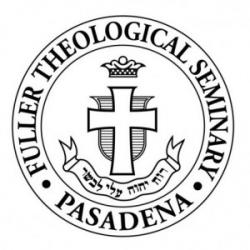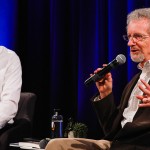This is the seventh installment of a series of posts by Dr. Yong on the theme of the “Holy Spirit and Mission in Canonical Perspective.” See all the posts here.
Numbers 27:16-18 & Deuteronomy 34:9
There is only one reference to the divine wind in Deuteronomy: “Joshua son of Nun was full of the spirit of wisdom, because Moses had laid his hands on him; and the Israelites obeyed him, doing as the Lord had commanded Moses” (34:9). In what follows, I wish to assess the missiological relevance of this text at three levels: that of the text its

elf, including its relationship to references in the book of Numbers; that with regard to the canonical role of this text within the wider Deuteronomic history; and that related to a broader understanding for contemporary theology of mission.
At the textual level, the Hebrew grammar could be interpreted in a way that minimizes the import of the pneumatological reference so that rather than positing a direct causal relationship between the divine wind and Joshua’s leadership (as if it was because of the laying on of hands that he is filled with the breath of God), the former could stand more or less on its own, apart from the latter, and thus the second part of the verse would read as making a separate point: “When (or Since) Moses had laid his hands upon him, the people of Israel obeyed him….” [Walter Vogels, “The Spirit in Joshua and the Laying on of Hands by Moses,” Laval théologique et philosophique 38:1 (1982): 3-7, at 7]. Yet even if this rendition is adopted, it might suggest that it was because Joshua was full of the “spirit of wisdom” that Moses laid his hands on him and, more importantly, that he is obeyed by the Israelites. This reading is actually consistent with the parallel passage in Numbers where, “the Lord said to Moses, ‘Take Joshua son of Nun, a man in whom is the spirit, and lay your hand upon him’” (27:18). In either case, however, it ought not be overlooked that even if the divine wind is not given throughMoses’ laying on of hands, Moses’ investiture – uniquely recorded in the Torah – can be understood as completing the enabling of Joshua for the task set before him: which was to lead Israel into the promised land. In this case, the “spirit of wisdom” has less to do with what is known as the wisdom section of the Ketuvim (the third section of the Hebrew Bible) and more to do with Joshua as prophet-leader like Moses (Deut. 34:10-12). From a missiological perspective, Joshua needs the full presence of the divine breath for the task ahead of him (the conquest of Canaan), just as Moses also needed divine inspiration (for the exodus from Egypt and the wilderness sojourn). Arguably if Israel is to be a witness to the nations, as urged by both the Abrahamic and Sinaitic covenants, then the people of Israel need a leader who is filled with the divine wisdom.
At this wider canonical level of the Deuteronomic history, however, there are multiple interpretive and then theological, and related missiological, considerations, all of which are interrelated. Exegetically, the questions are legion and concern contested scholarly understandings of the relationship between chapter 34 and, on the one hand, the book of Deuteronomy in particular, and on the other hand, the Torah and subsequent historical material from Joshua and Judges onward in general; theologically, the problem is most acute when we consider Joshua’s leadership as involving the conquest of Canaan and the genocide carried out under the dictates of Yahweh himself. We will not be able to resolve the latter question here nor will we need to do so in order to discern at least one line of missiological application. My claim is that no matter when or even whereof the provenance of Deuteronomy 34, a canonical reading of this passage understands it as symbolic of the transition of leadership from Moses to Joshua. Understood in this sense, this 34th chapter communicates at least this important missiological point: that the renewal of the covenant (looking backward through the book of Deuteronomy) is important not only for Israel’s ongoing life (looking ahead into Joshua and the conquest) but also for how the people of God can yet bear adequate witness to Yahweh amidst and among the nations. More precisely, Israel is to bear witness to her God by being distinguished from the nations: worshipping Yahweh rather than their gods; having a king who is attentive to the divine law rather than one that acts as do other kings that lord it over their peoples (Deut. 17:14-20); and being led not by the practice of sorcery and divination but by Yahweh’s appointed prophets (18:9-22), among other distinctions. Moses becomes the prototypical prophet (18:15, 17), and it is in his footsteps and “spirit” that Joshua is now appointed as prophetic leader of Israel.
Joshua’s track record as unfolded through the conquest narratives may not be exemplary when considered in postcolonial perspective. His just treatment of Rahab (Josh. 2) and the Gibeonites (Josh. 9) somehow do not justify the violence wracked on Canaanite women and children explicit elsewhere in the book of Joshua. Yet there is no downplaying Joshua’s attempt to remain faithful to Yahweh throughout his life – witness his encouragement of Israel’s continued faithfulness in following his example: “as for me and my household, we will serve the Lord” (24:15b) – and in that sense, he is the worthy divinely-enabled and inspired successor to Moses. Hence recognizing Joshua as one “full of the spirit of wisdom” is not to assert a flawless character, but to acknowledge that he leads in the authority and spirit of Moses (cf. Num. 27:20). Such leadership emerges from out of encounter with the living God, and it is only through such dynamic relationship that the covenant is both to be renewed and abided by. If Joshua lives into his vocation not only out of his natural charismatic abilities but in and through the divine breath, then the witness of Israel to the nations also succeeds only by the ruach of Yahweh.
It is this indispensability of the divine wind that must be further noted at the level of considering the implications of this text for contemporary theology of mission. Recall that Joshua’s pneumatic installation as next leader of Israel under the hand of Moses occurs because the latter specifically asks Yahweh to be mindful of his people: “Let the Lord, the God of the spirits of all flesh, appoint someone over the congregation, who shall go out before them and come in before them, who shall lead them out and bring them in” (Num. 27:16-17). Interestingly, wherein this is passage “the God of the spirits of all flesh” identifies the God of Israel, in the only other time this phrase appears is when the destruction of Israel is threatened by the sins of Korah, Dathan, and Abiram (Num. 16). There Moses pleads on behalf of Israel by naming Yahweh as “the God of the spirits of all flesh” (16:22), in effect addressing Yahweh as the creator of all life and thus with a special obligation to sustain, rather than eradicate such life, even when they belong to the enemies of God. Within the Deuteronomic context, Israel not only lives among and is called to bear witness to the nations, but Yahweh is also “Most High” over all the nations (Deut. 32:8). Human participation in the mission of God thus unfolds under ambiguous circumstances, thus necessitating those who might emerge that are enspirited by the wind of Yahweh to stand in the gap on behalf of all others that exist merely via the breath of life.
Amos Yong came to Fuller Seminary in July 2014 from Regent University School of Divinity, where he taught for nine years, serving most recently as J. Rodman Williams Professor of Theology and dean. Prior to that he was on the faculty at Bethel University in St. Paul, Bethany College of the Assemblies of God, and served as a pastor and worked in Social and Health Services in Vancouver, Washington. Yong’s scholarship has been foundational in Pentecostal theology, interacting with both traditional theological traditions and contemporary contextual theologies—dealing with such themes as the theologies of Christian-Buddhist dialogue, of disability, of hospitality, and of the mission of God. He has authored or edited over 30 volumes.
Follow Fuller Seminary on Twitter at @fullerseminary.
















